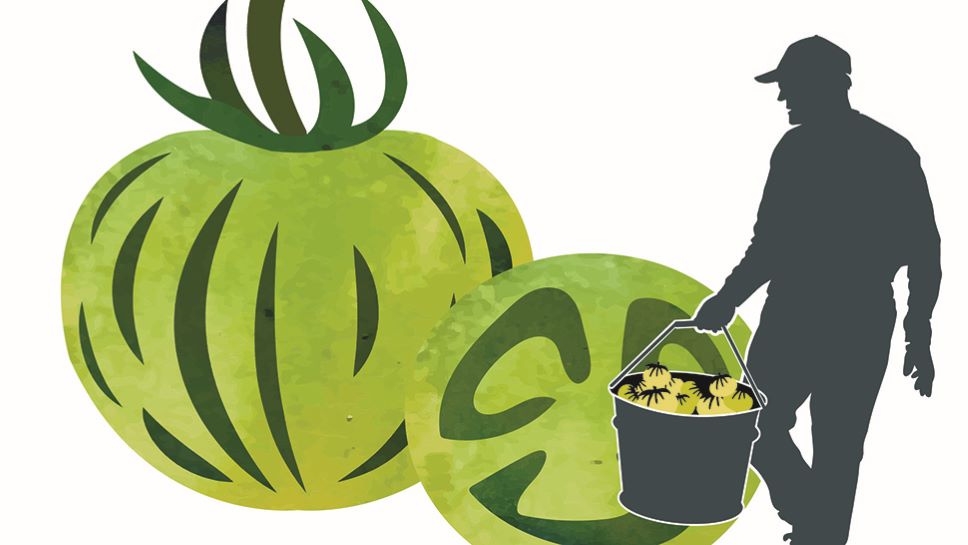
Celebrating Progress and Recognizing Continued Struggles for Farmworkers’ Rights
While many food labels you might find in the grocery store provide insight on a farm’s environmental approach or treatment of animals (think: USDA Certified Organic or Certified Humane), few give meaningful insight on the ways farmworkers are compensated or treated.
Progress is Being Made
This is where programs like the Fair Food Program (FFP) and the Equitable Food Initiative (EFI) come in. In a collaboration between Oxfam, United Farm Workers, Bon Appétit Management Company, and others, EFI was the first third-party food certification that looked at both environmental and social factors to provide a more holistic picture for a more just and sustainable food system.
EFI-certified farms have some of the most rigorous and comprehensive labor standards in the industry. Workers receive higher wages in addition to food safety training, providing consumers with an additional degree of confidence in EFI-certified produce. Farms are also guided by a more thoughtful pest management approach, which means less exposure to pesticides, protecting workers and the surrounding environment.
In the past nine years, the Equitable Food Initiative has distributed over $17 million dollars in wage bonuses, positively impacting over 60,000 farmworkers across the US, Mexico, and Canada. Higher wages, worker protection, and skill development are all key to empowering farmworkers, lending dignity to a long-undervalued profession. As a company, we have committed to sourcing tomatoes and strawberries west of the Mississippi River from EFI-certified growers and are actively encouraging program expansion.
The Fair Food Program is a shining example of worker-driven social responsibility led by the Coalition of Immokalee Workers (CIW). As a unique partnership between farmers, farmworkers, and retail food companies, the program ensures accountability for humane wages and working conditions with premiums paid directly to farmworkers by food purchasers. (Read more about the program here).
Since Bon Appétit committed to purchasing FFP-certified tomatoes east of the Mississippi River over a decade ago, the initiative has expanded far beyond tomatoes in Florida, including other crops and animal products across the US and the world. So far, they have distributed over $45 million dollars to farmworkers through Fair Food Premiums thanks to the organizing efforts of the CIW, an impressive feat in the decades-long battle for fairer wages.
While there is no federal minimum wage for farmworkers in the US, some states have established their own wage requirements, one small step in recognizing the value of farm work with tangible benefits for workers and their communities. For instance, the current minimum wage for all workers in California, including agricultural workers, is $16 (as of January 1, 2024).
Much Work Still to Be Done
However, there is still much work to be done. As a whole, farmworkers continue to have some of the lowest wages in the labor force, and around 20% of farmworking families are below the poverty line. A majority face challenges with immigration status, with no path to citizenship in sight. Because this work is inherently seasonal, wages don’t provide financial stability throughout the year, even in places with higher minimum hourly rates like California. And during the season, workers are also increasingly subject to disrupted harvests impacted by climate change and unpredictable weather events.
As we spread awareness about these issues during National Farmworker Awareness Week and beyond, we uplift the progress made by farmworkers’ rights organizations and continue the search for a more equitable food system, one tomato at a time.